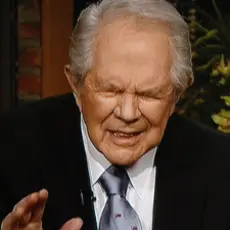Rounding out a spate of recent right-wing endorsements of Republican presidential candidates, Fred Thompson has secured the support of the National Right to Life Committee. While not as far-fetched as Pat Robertson’s Giuliani endorsement, the pairing ought to raise some eyebrows, and not just because of Thompson’s rejection of major NRLC priorities such as the Human Life Amendment and federal intervention in Terri Schiavo’s case, or the candidate’s warning that a national abortion ban could lead to putting girls in prison, a notion Wendy Wright of Concerned Women for America called “insulting.”
In his cornpone video message to NRLC’s annual convention last summer, Thompson played up his kinship with the group and his “100 percent” anti-abortion record in the Senate, but Thompson’s signature accomplishment in Congress was passage of campaign-finance reform, a bill hated by anti-abortion groups (as John McCain discovered) and arguably by no one more than NRLC.
In fact, Thompson’s campaign-finance hearings in the late 1990s specifically targeted NRLC, subpoenaing its and other groups’ financial records in search of evidence of electioneering. As recently as 2003, Thompson wrote an amicus brief to the Supreme Court in support of the law’s regulation of “sham issue advocacy by non-party groups”—a point decided by the Court this year, in favor of “sham issue advocacy,” in a case involving NRLC affiliate Wisconsin Right to Life. (NRLC’s continuing disdain for campaign-finance regulation is also implied by its neglect to mention in its press release that the endorsement is actually by NRLC’s affiliated PAC.)
The odd endorsement led conservative-movement stalwart Paul Weyrich to suggest that the group had been bought off. "I think in all probability the Thompson people were engaged with the National Right to Life people in financial dealing," he said.
(The Thompson campaign turned this accusation back at Mitt Romney, whom Weyrich recently endorsed, noting “the Romney campaign's long history of spreading money around to anyone who will take it.” See here and here.)
According to NRLC, the whole campaign-finance thing is no big deal. “Our opposition to McCain-Feingold dealt with our consideration of the ability of National Right to Life and grassroots citizens to express themselves in the process," said the group’s director, David O’Steen. "That cannot be compared to the question of protecting the lives of innocent, unborn children and preventing them from being slaughtered.” The group similarly waved off disagreements about a constitutional abortion ban and Terri Schiavo. It’s all about judges, said O’Steen: "What [Thompson] said was he was going to concentrate on what he could affect. And that's what we want him to do. And what he can affect is to see that judges are appointed that will interpret the constitution according to its actual text."
While NRLC’s endorsement gives Thompson’s sluggish candidacy a much-needed jolt of pep, the group’s apparent compromise on formerly absolute principles may dull the buzz. Veteran clinic protester Joseph Sheidler downplayed the importance of the group he rallied with in the 1980s and 1990s: “With…so many [pro-life organizations] active and so many taking other positions on other candidates…10 years ago it would have been a much bigger influence.”
Other anti-abortion hardliners have been more blunt in recent months. A spat over an anti-James Dobson ad in May led NRLC to come to the defense of Dobson against its own state affiliate, Colorado Right to Life. Colorado RTL President Brian Rohrbough seemed to predict Weyrich’s words when he accused NRLC of selling out:
"What happened in the abortion world is that groups like National Right to Life, they're really a wing of the Republican Party, and they're not geared to push for personhood for an unborn child -- they're geared to getting Republicans elected," he said.





